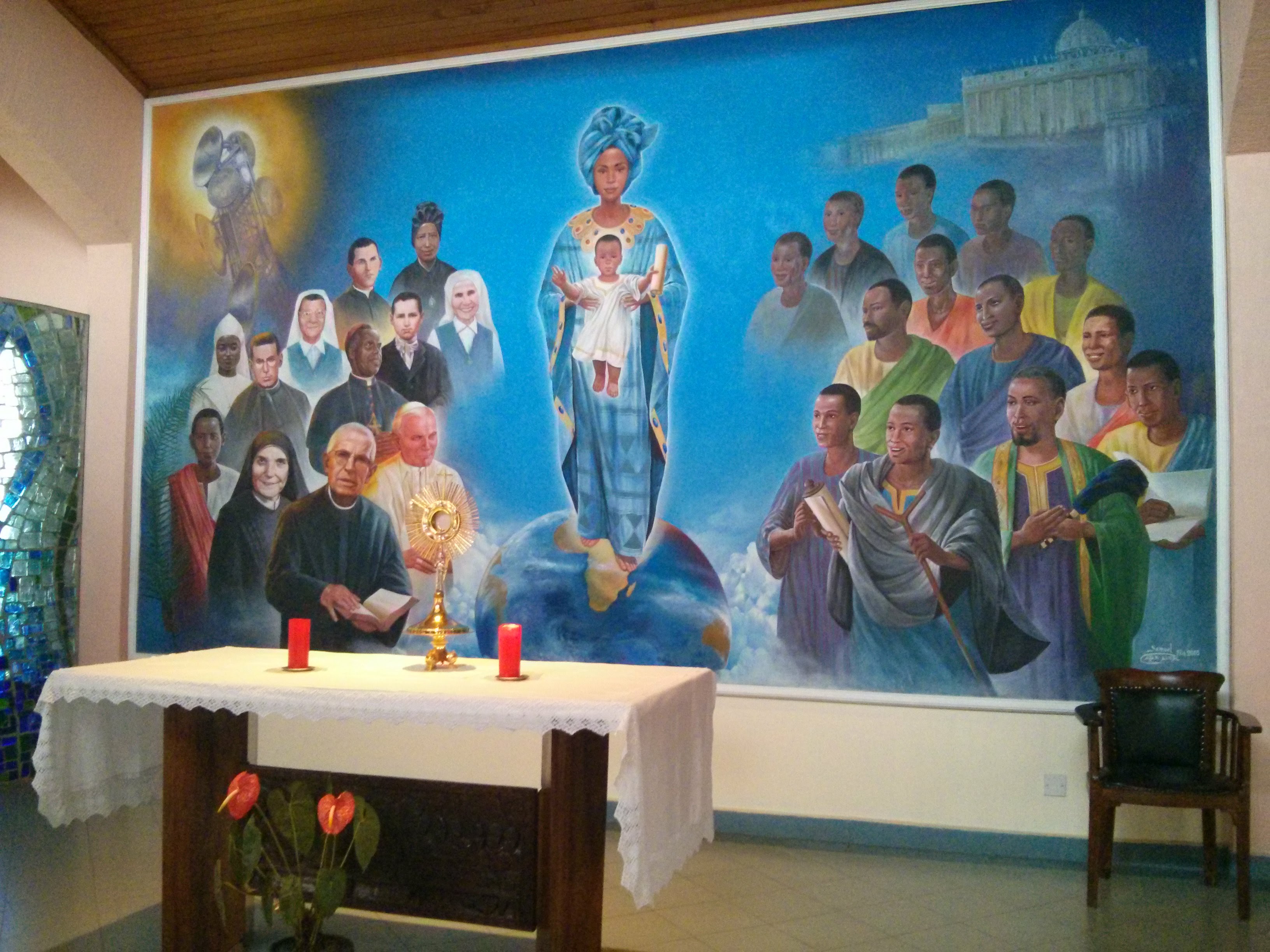 Nairobi—Altar mural in the chapel at Paulines Publications Africa headquarters, run by the Daughters of St. Paul (Photo: Francis Salinel)
Nairobi—Altar mural in the chapel at Paulines Publications Africa headquarters, run by the Daughters of St. Paul (Photo: Francis Salinel)This past July, CWCIT’s staff packed up and headed to Nairobi, where it hosted a colloquium at Hekima University’s Institute of Peace Studies and International Relations (HIPSIR). The event brought together nearly 40 scholars to discuss their chapter drafts for a new book,
The
Handbook of African Catholicism. Both lay and religious, they form the CWCIT Network of African Catholic Scholars which, together with the
Handbook, is part of the larger “African Catholicism Project,” spearheaded by CWCIT research professor, Stan Chu Ilo and made possible thanks to a private grant.
The majority of the scholars—11 of whom are women—are from the African continent itself and include university professors, missionaries, and canon lawyers. All experts on different facets of Catholicism and Christianity in Africa, they are each contributing their specialized knowledge to the
Handbook, which is “wide-ranging in scope and interdisciplinary in approach,” Ilo explains. “It aims not only to be a review of a discipline or topic, but a contribution to it and a means to carry the debate forward. The issues considered range from those hotly contested for decades to those only now being opened up for discussion in African Catholicism.”
Among those contributing to the
Handbook are two former CWCIT visiting scholars: Rev. Agbonkhianmeghe Orobator, SJ, a prominent theologian from Nigeria and the new president of the Jesuit Conference of Major Superiors of Africa and Madagascar and Rev. Laurenti Magesa, a groundbreaking Tanzanian scholar who received an honorary doctorate from DePaul in 2014 for a body of work that truly reshaped the study of Catholicism in Africa.